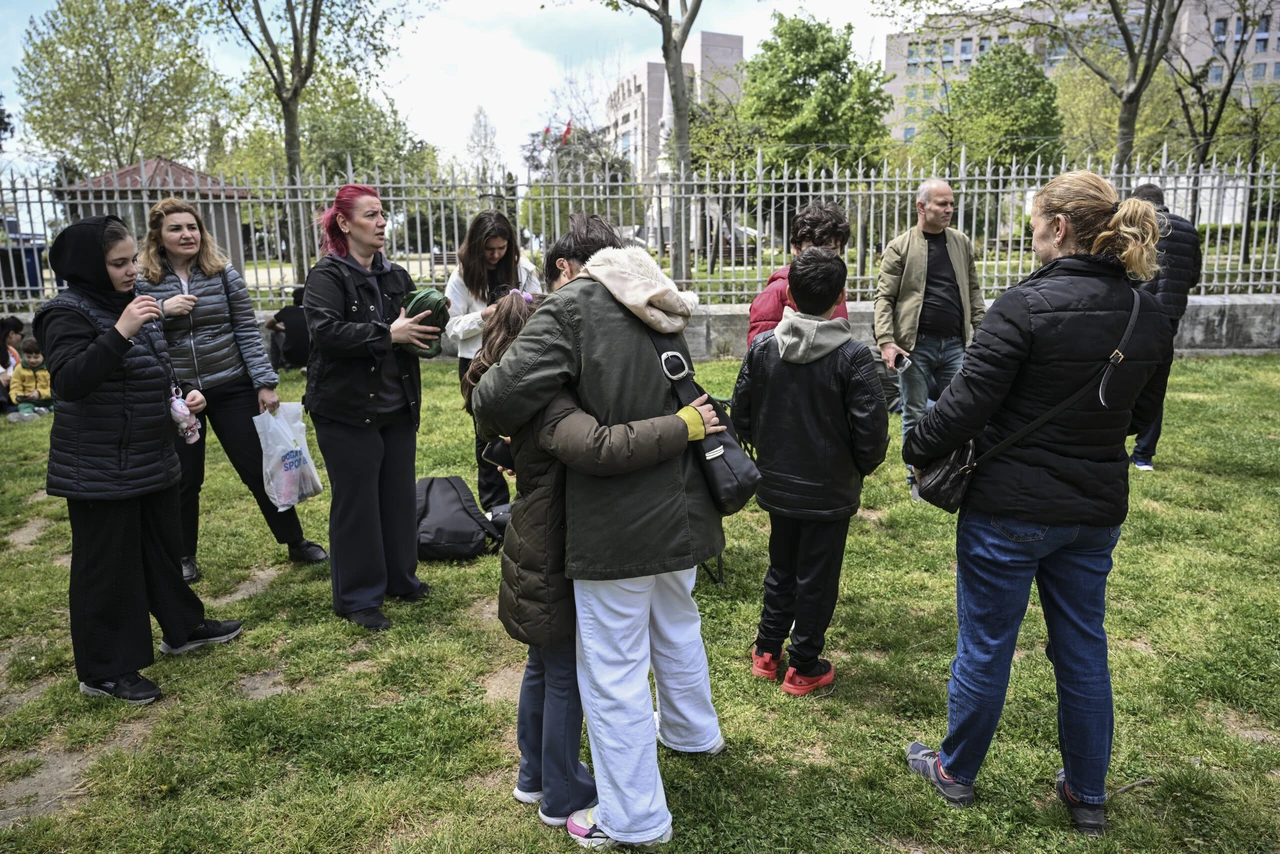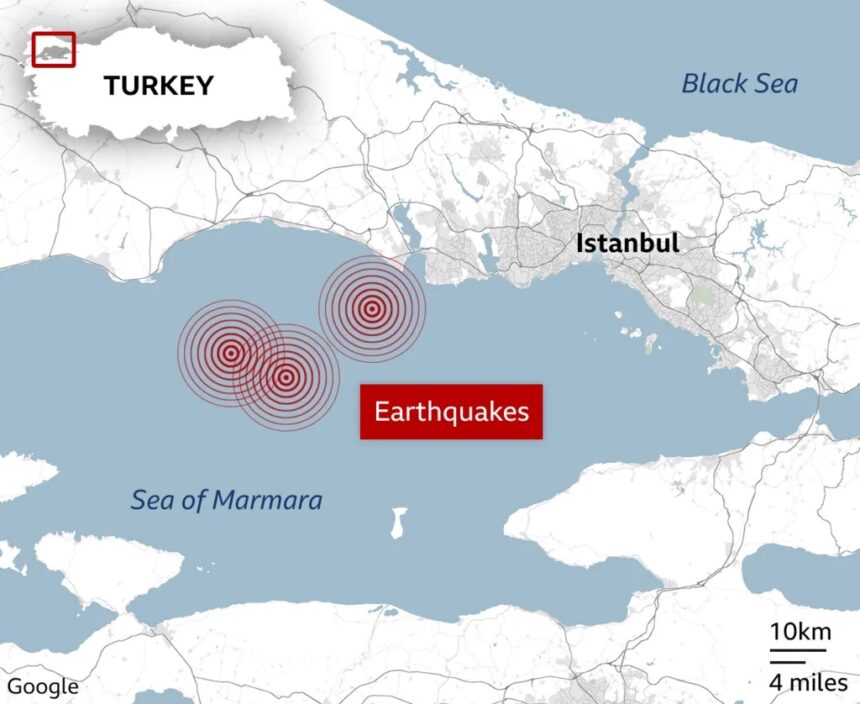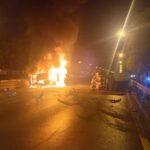Several earthquakes, including a 6.2-magnitude tremor, hit near Istanbul, shaking buildings and sending people outside in fear. At least 151 people were injured, many as they jumped from buildings to escape. No deaths or serious damage to buildings have been reported.
The strongest quake struck at 12:49pm local time (09:49 GMT) at a depth of nearly 7km, according to emergency services. More than 50 aftershocks followed throughout the afternoon, keeping people on alert. Many chose to stay outside or prepare to sleep in public spaces just in case another big quake hit.
The centre of the quake was near Silivri, a coastal area about 80km west of central Istanbul along the Sea of Marmara. People across the city said it was the strongest shaking they had felt in years, and many worried it might not be the last.
Crowds gathered in busy spots like Besiktas square, a popular area for students. Selim Ustaoglu, a university student, grabbed some basics—phone charger, toothbrush, and a favourite jumper—before heading out. He said he planned to stay outside overnight.
Another student, Zeynep Akincioglu, told BBC News he wouldn’t risk bringing his family back home while aftershocks continued. He was worried about the safety of their building.

Istanbul Residents Fearful
Selva Demiralp, an economics professor, said she was in a high-rise with her family when the earthquake hit. She described the moment as frightening but said there was no visible damage where she was. She added that people were nervous about whether the quake was a warning of something bigger to come.
Authorities in Istanbul said there was no major damage to the city. An abandoned building in the Fatih area collapsed, but energy, gas, water, and sewage services stayed on as normal.
Istanbul schools, already closed for a public holiday, will stay shut for the rest of the week. The education minister said school grounds and other open areas would be available as safe places for people to gather.
Last year, two huge earthquakes struck southern Turkey, killing over 55,000 people. These events heightened fears of a potential major quake in Istanbul.
In 1999, a 7.6-magnitude quake near Izmit, about 100 km east of Istanbul, killed over 17,000 people and displaced 500,000, highlighting the region’s vulnerability.
Istanbul is home to around 16 million people, about a fifth of Turkey’s population. The city sits just north of the North Anatolian Fault, a known earthquake zone. Turkey is situated at the junction of three tectonic plates (Eurasian, Arabian, and African), making it one of the world’s most earthquake-prone regions.
Experts estimate a 60% chance of a 7.0+ magnitude earthquake striking Istanbul by 2030. The last major quake directly affecting the city was in 1766, and seismologists warn Istanbul is “overdue” for a significant event. Approximately 1.5 million buildings (one in five) are considered structurally unstable.
Related News:
5.9 Magnitude Earthquake in Myanmar Felt in Mae Hong Son, Chiang Mai, and Chiang Rai

Geoff Thomas is an award winning journalist known for his sharp insights and no-nonsense reporting style. Over the years he has worked for Reuters and the Canadian Press covering everything from political scandals to human interest stories. He brings a clear and direct approach to his work.












